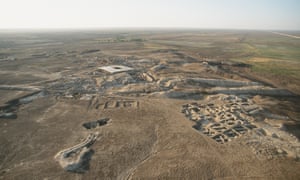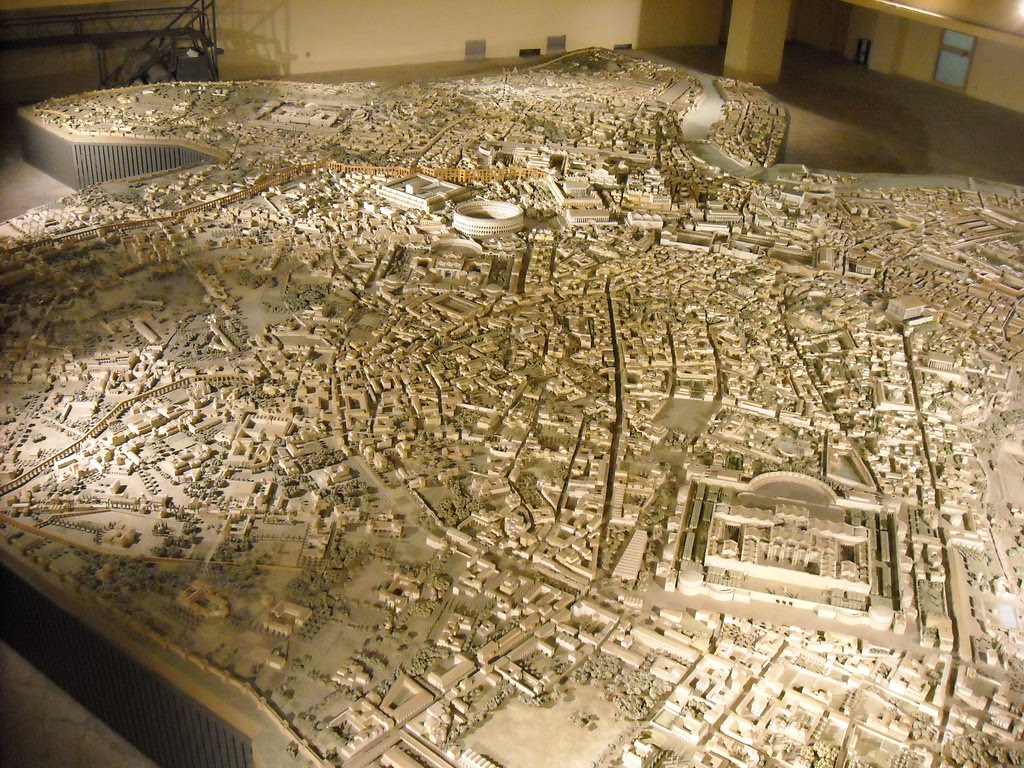via 3 Quarks Daily: Veronique Greenwood in The New York Times
Outside the kitchen door at the Kuala Belalong Field Studies Center in Brunei, on a number of trees near the balcony, there is a nest of very special ants. They explode.

Colobopsis explodens, in dark red, attacking a weaver ant. The exploding ants, found on the island of Borneo, rupture their own abdomens to douse intruders with sticky toxins and defend their nests. Alexey Kopchinskiy
Continue reading
==============================
via Interesting Literature
On Lawrence’s classic short story about the war between the sexes
‘Tickets, Please’ was first published in 1918, while the First World War was still raging. But D. H. Lawrence’s short story of love, sex, betrayal, and vengeance is set on the home front rather than the western front, and centres on the battle of the sexes rather than the horrific conflict in northern France and Belgium.
Continue reading
==============================
via the Big Think blog by Philip Perry
While today profuse sweating is a social embarrassment, in the past it gave us an evolutionary advantage.
Persistence truly does pay off, even if you have to endure the perspiration that comes with it. This is true right down to the biological and evolutionary level, and is in fact how we got here, as the apex predator of the planet. Millions of years ago, digestion consumed most of the calories we ate. These days, our brain takes 20 times more energy than any other organ in the body. So for our brain to develop, we needed a higher density food. Meat—obtained from hunting and killing other animals—fit the bill.
Continue reading
==============================
via Arts & Letters Daily: Mark Hiljeh for the Russell Kirk Centre
Around 1542, Martin Luther complained, “Why is it that we have so many fine poems and so many beautiful songs of the flesh, but of the spirit we have such worthless cold things?” More than a thousand years earlier, the Church Father Tertullian had asked “What has Athens do to with Jerusalem?”—by which he meant to address not only the philosophical underpinnings of a Christian community that would be “in the world but not of it,” but also the nature of the resulting culture itself, not least its music and other arts. A couple of centuries after Luther, the Rev. Rowland Hill (1744–1833) opined that “The Devil should not have all the best tunes,” a remark that was, according to Helen Hosier, likely picked up in the form of a question by none other than Salvation Army founder William Booth.
Continue reading
==============================
via 3 Quarks Daily: Tim Crane at The Point
The familiar charge that atheism itself is a kind of religion or church is therefore deeply mistaken. Without sacred things, there is no church. But are atheists really excluded from employing some idea of the sacred? While some seem to think that they too are entitled to employ the idea of sacred things, if I am right, they are either mistaken or are using the word in a very different way. The philosopher Simon Blackburn, for example, complains about the “religious appropriation of the sacred” and says that “to regard something as sacred is to see it as marking a boundary to what may be done.” That’s true, but there are many ways of drawing boundaries without marking out the sacred: moral prohibitions and other taboos draw sharp boundaries between things to be done, but these are not necessarily between the sacred and the profane. What atheists mean by calling something sacred, normally, is that it is very precious or has some special kind of significance that goes beyond any pleasure or satisfaction it delivers in a present moment. But the notion of the sacred that I have been using is very different, since it essentially involves religious practice or ritual that “points” towards the transcendent. There can be nothing like this in an atheist’s world picture—and this is why there can be no atheist church.
Continue reading
==============================
via the Guardian by Mary Shepperson

Aerial view of Mari before the arrival of IS. The protective roof over the palace area is visible at the centre. Photograph: Courtesy of the Mission Archéologique Française de Mari
The ancient city was one of the first archaeological sites to be occupied by Islamic State. Now new photos are revealing the fate of this important site as archaeologists continue to count the cultural cost of Isis
Three weeks ago, the Syrian antiquities directorate released new photos showing another devastated archaeological site. Outside Syria the news has received fairly limited press attention, except in France, where Mari, the site in question, is much better known. French archaeologists have been excavating at Mari since 1933, the most recent expedition running until 2010 when the Arab Spring and growing unrest made the site inaccessible. In light of the level of damage which is now evident, perhaps it’s worth sparing a moment to look at why Mari matters to archaeologists, historians and the cultural heritage of Syria.
Continue reading
==============================
via Boing Boing by Rob Beschizza

Mussolini commissioned this enormous scale model of Ancient Rome and it took 4 years to build. Surely, much of this is guesswork?
Continue reading
==============================
via About History by Alcibiades

The battle of Verdun is the largest and longest battle between German and French troops during the First World War on the Western Front, from February 21 to December 18, 1916. One of the largest and one of the most bloody military operations in the First World War and history in general, it went down in history as the Verdun meat grinder, a textbook example of a war of attrition. During the battle, French troops were able to repel a large-scale German offensive near Verdun.
Continue reading
==============================
via the Big Think blog by Frank Jacobs
Three-quarters of tree species common in the eastern U.S. have moved their population centres westward over the last 30 years – an effect not predicted by assumptions about global warming.
In our minds, few things are as place-bound as trees – with Birnam Wood in Macbeth and the Ents in Lord of the Rings as fictional exceptions to prove the rule. However, while individual trees are rooted, tree species as a whole are indeed capable of movement. Enough to baffle scientists, as shown on these maps, published in Science Advances.
Continue reading
==============================
via Interesting Literature
The best English poems about nature
Nature is one of the great themes of poetry, and also provides poets with a storehouse of vivid and useful images. Below, we’ve chosen ten of the very best nature poems in English literature.
Continue reading
No comments:
Post a Comment